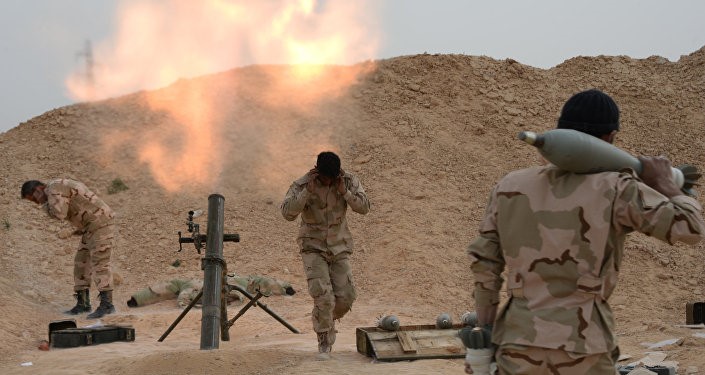Syrian Army Repels ISIS Attacks on Government Forces in Raqqa Province


A military source said, an army unit clashed with a group of ISIS terrorists attacked a military post at the triangle of al-Rassafe, killing and injuring a number of terrorists.
On Wednesday, Syrian Army Air Force destroyed vehicles for ISIS to the north side of Zakia crossroads and the south side of al-Tabqa city in the countryside of Raqqa province.
Syrian army in cooperation with popular defense groups, backed by Syrian and Russian air forces, began on 2 June a wide military operation on Athriya-Khanaser- al-Tabqa axis that resulted so far to establish control over Zakia-Deir Haffer crossroads, Abu al-Zain mountains, al-Masbah area, Abu al-Alaaj village, power and oil pumping plants, two oil fields, Harbiyat and Anbaj villages and al-Safeeh triangle at Habari field, SANA reported.







